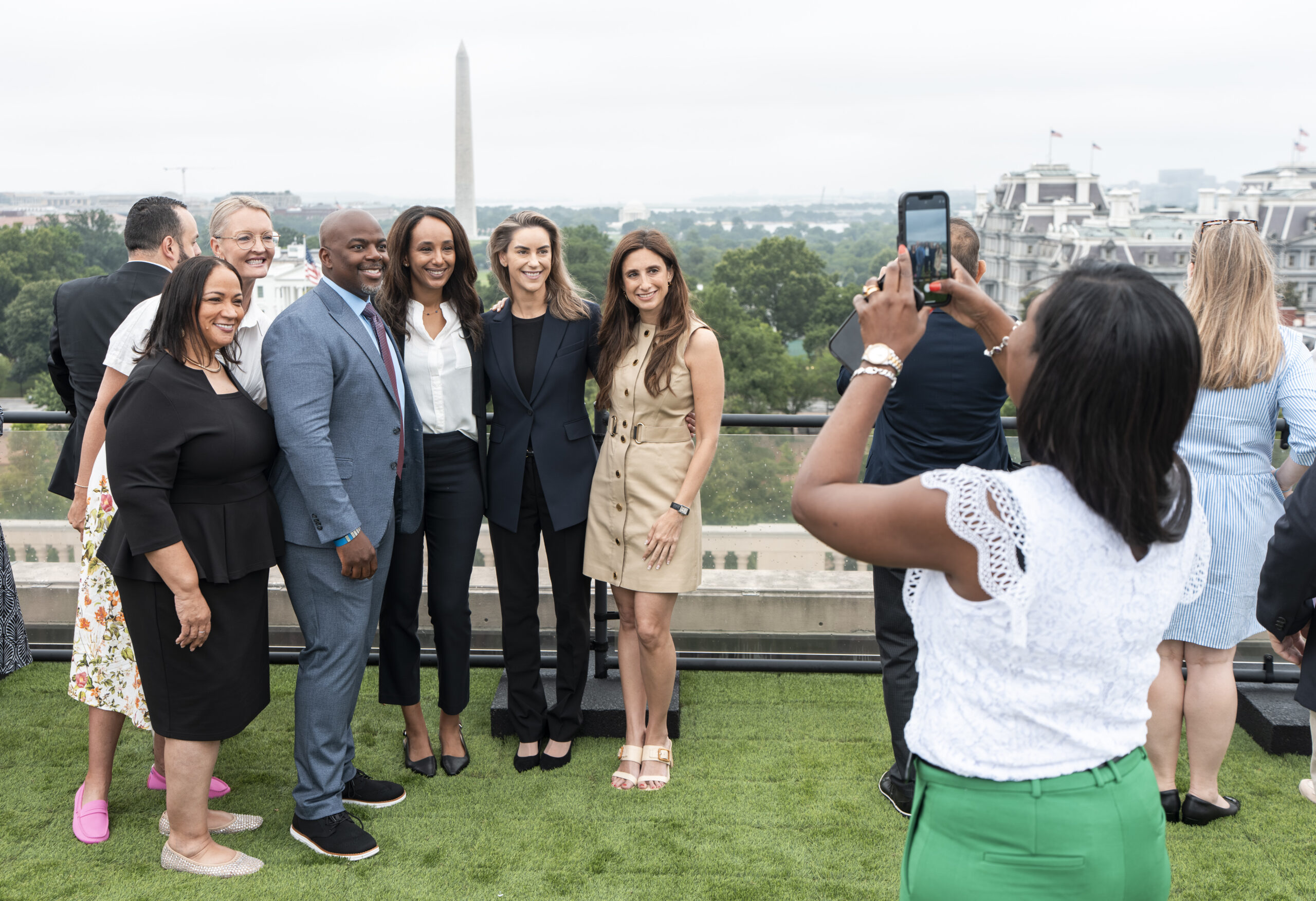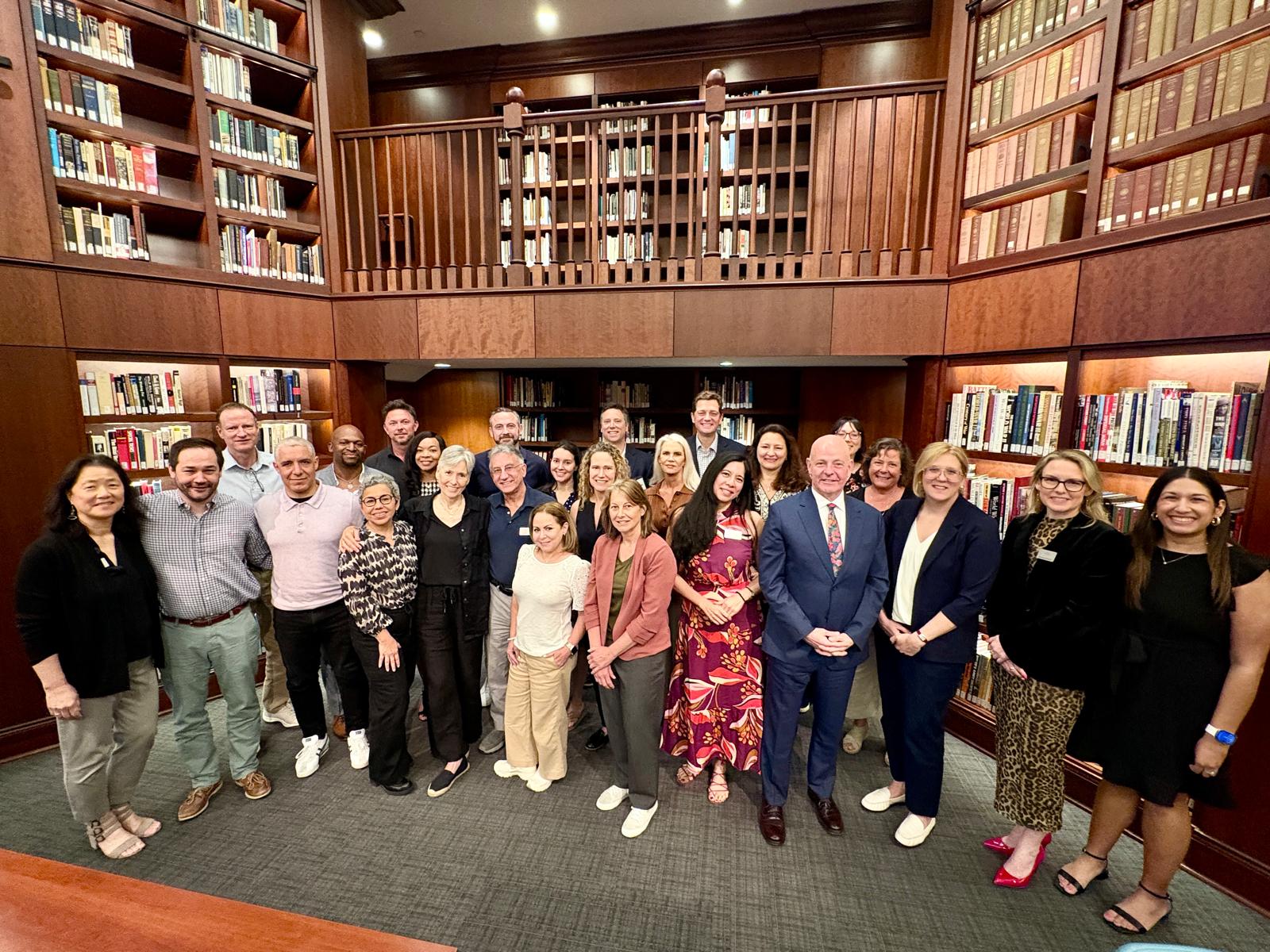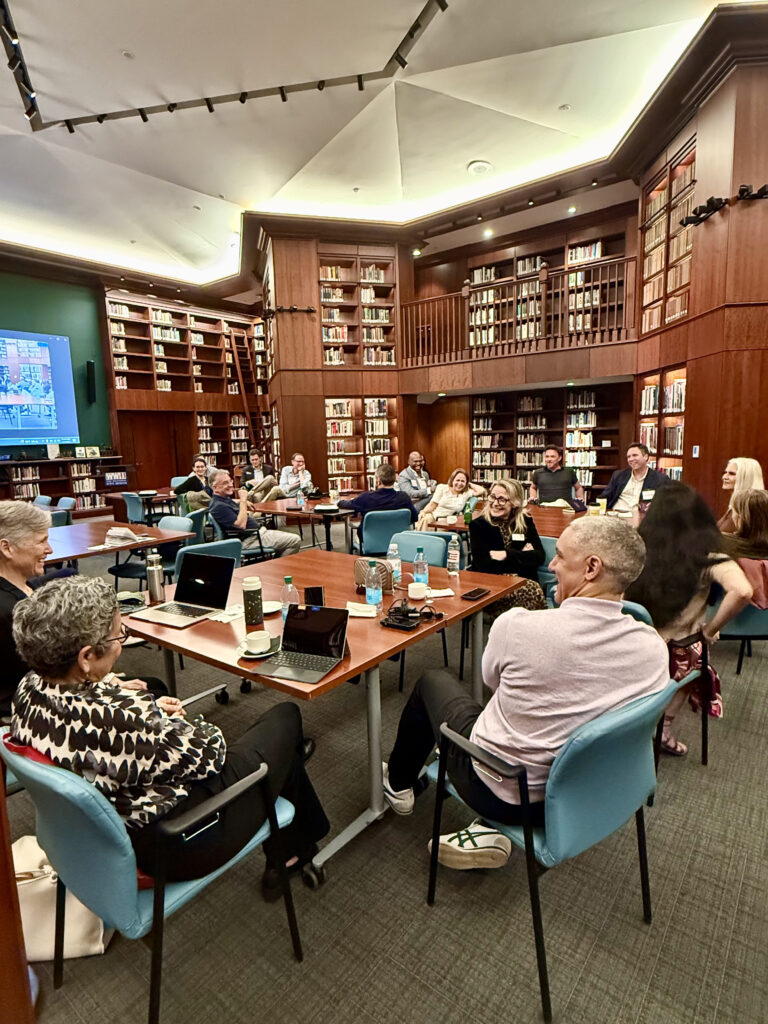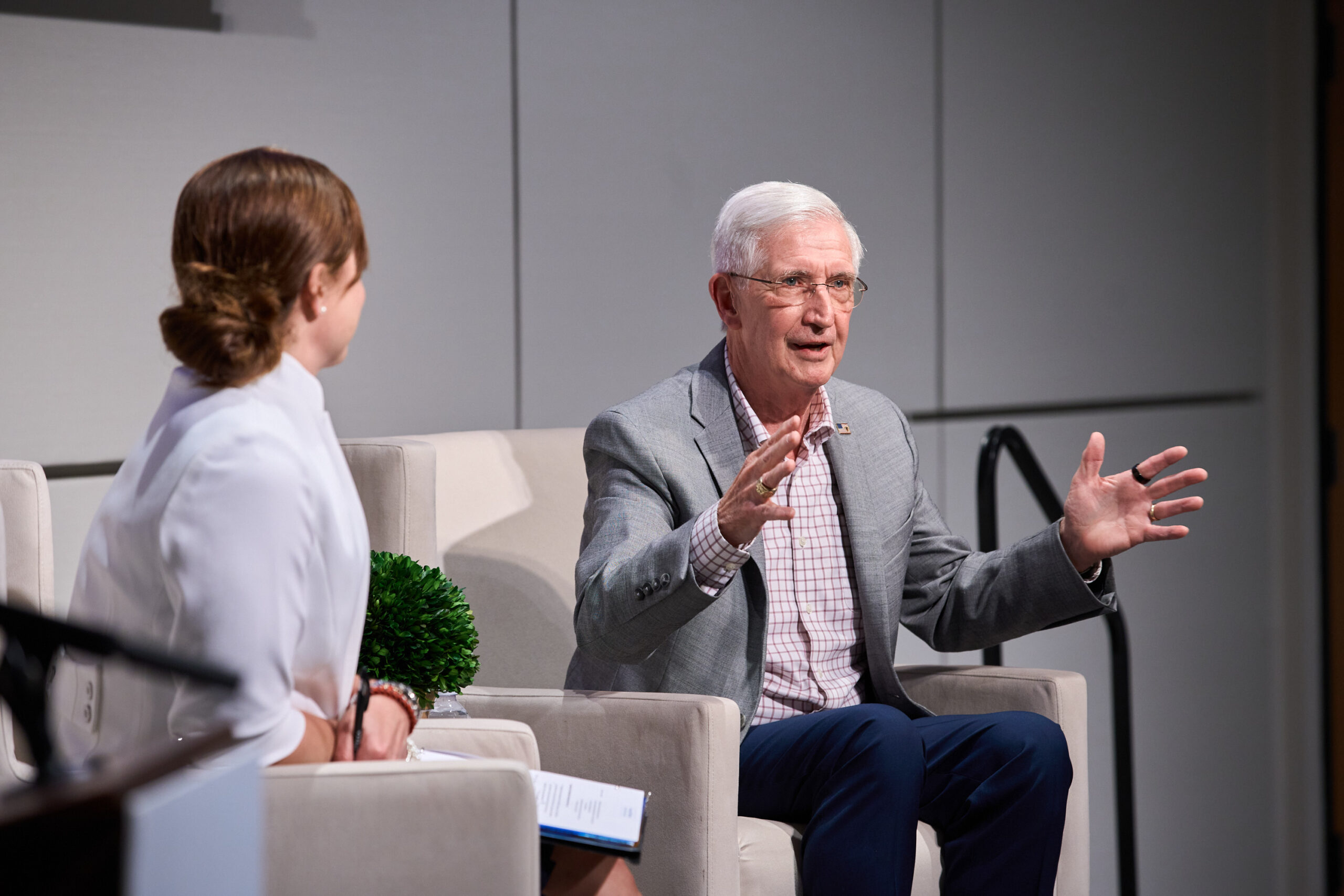By Nicole Hawkins
In June, the 10th annual class of Presidential Leadership Scholars graduated from the program, bringing the number of alumni to nearly 600. For over a decade, PLS has brought together accomplished professionals from across the nation to learn leadership lessons through the experiences of Presidents George W. Bush, William J. Clinton, George H.W. Bush, and Lyndon B. Johnson.
But what sets PLS apart from the many incredible leadership programs out there? There are the opportunities to meet and hear from two former presidents, history-making leaders, academics, and business executives. Scholars travel around the country visiting world-class presidential museums and places essential to our nation’s democracy. And they learn valuable leadership lessons from expert faculty that they can apply to their jobs and lives.
But what really makes PLS one-of-a-kind is the community. The 60-or-so Scholars in each class are more than acquaintances participating in a program together. They are peers who work together to tackle the challenges facing our country and world. They are friends who are there for one another through life’s happy moments and great difficulties, confidants they can trust, and family that will be by each other’s sides for years to come.
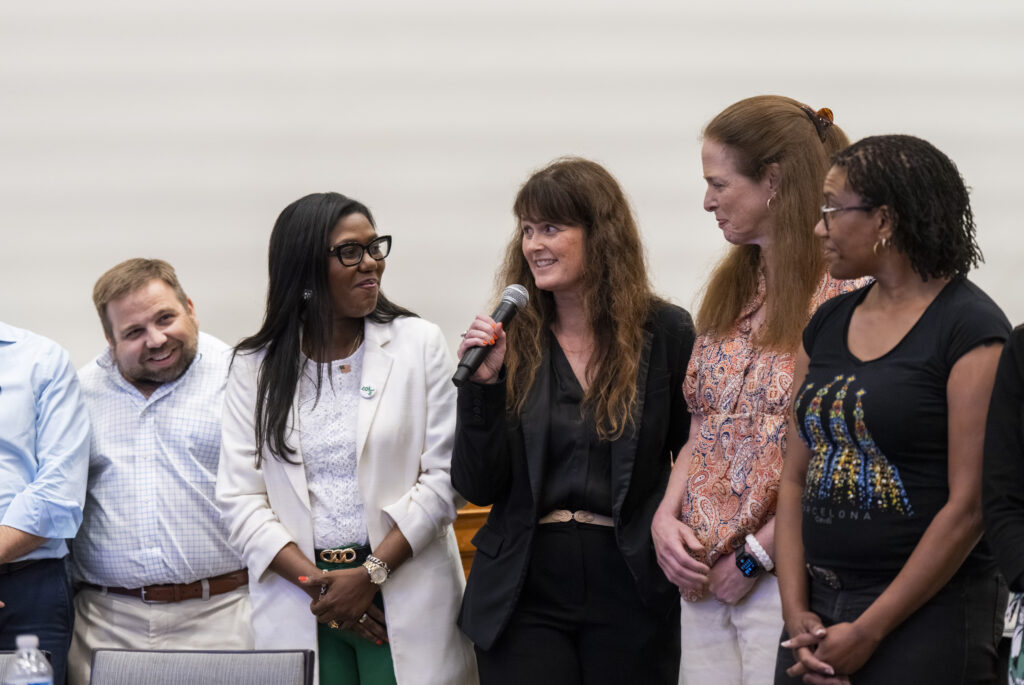
Take, for example, 2025 Scholars Ed Magee, Tracy Dufault, and Marshall Bahr. Ed is a Chief Operating Officer from Tennessee, Tracy is a Senior Vice President of Merchandising Operations from Arkansas, and Marshall is Founder and Owner of a medical consulting firm from Ohio.
The three were strangers before starting the program in January. But by June, the three U.S. military veterans had drafted and signed a “Covenant of Enduring Friendship” — prompted by some difficulties one of them was facing — in which they promised to be consistent, steadfast friends to one another.
Their friendship covenant includes three core components. First, they committed to love one another when at their best, at their worst, and every place in between. “This love shall be unconditional, unwavering, and rooted in the deepest wells of human compassion,” they wrote.
Second, they recognized that “true friendship requires the courage of warriors, the wisdom of scholars, and the tenderness of caretakers.” They pledged to embody all three.
Last, they acknowledged that their bond “transcends convenience, survives conflict, and deepens through adversity.” They promised that their connection is stronger than their differences.
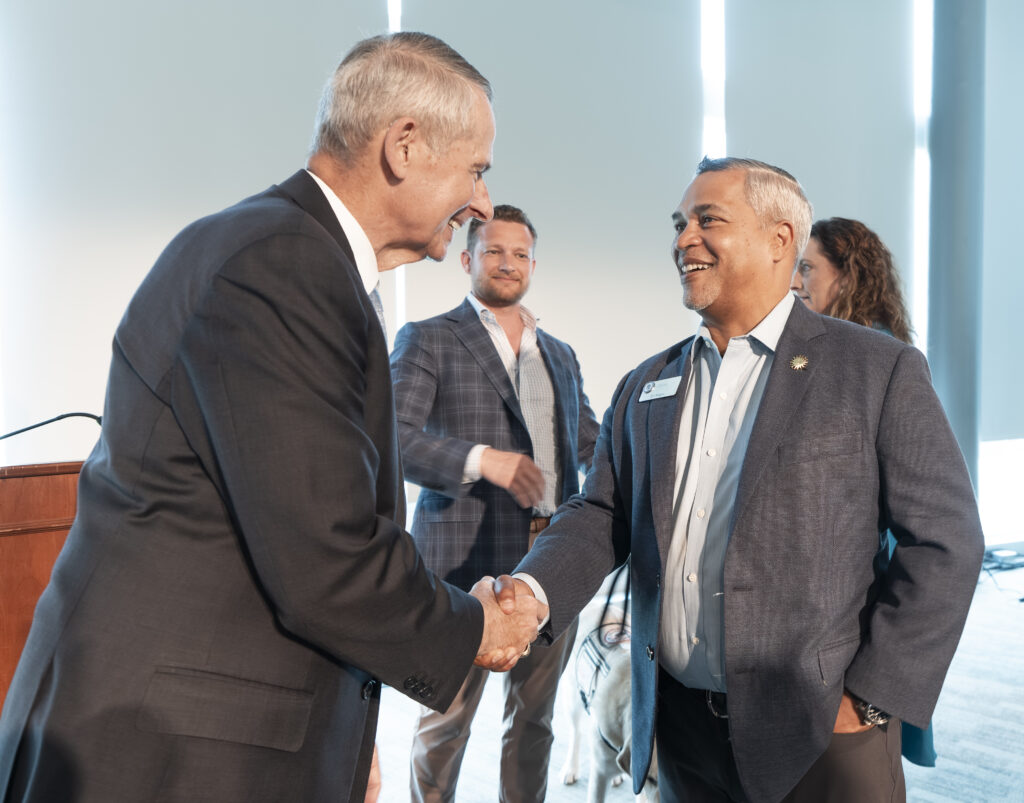
Ed, Tracy, and Marshall’s story is not a rare one in PLS. The hundreds of program alumni from the past decade could tell you similar stories of enduring connection and friendship. And it doesn’t stop there. Scholars are learning from the connections made in the program and applying them to their leadership roles across the country.
The community created by the 10th annual class was apparent during a visit to Arlington National Cemetery during their final program module organized by the Scholars themselves. Three Scholars and U.S. military veterans – Stephiney Foley, Niki Marin, and Tracy Dufault — along with outgoing PLS Co-Director Dr. Mike Hemphill, were chosen by the class to lay a wreath on behalf of PLS at the Tomb of the Unknown Soldier.
The tomb, while a place of great sorrow, is also one that ignites a deep respect and pride in country – a reminder that brave servicemen and women have paid the ultimate sacrifice for our freedom. As the Class of 2025 watched the wreath being laid, the care and respect they have for another was palpable. Veterans and civilian Scholars alike were moved to tears by the powerful moment and showed unwavering support to one another during the ceremony. Just as Ed, Tracy, and Marshall promised in their friendship covenant, the PLS community displayed in this moment, and in countless others, that the connections they’d built the past six months are unconditional and unwavering.
General Peter Pace, 16th Chairman of the Joint Chiefs of Staff, spoke with the Class of 2025 during their time in our nation’s capital. “Take care of the people you’re privileged to lead,” he told them. Presidential Leadership Scholars past and present take that charge seriously. What sets them apart is not only their leadership skills, but a desire to set their egos aside and truly care for the people they work alongside and lead.
This is the type of leadership we need more of. This is the type of leadership the PLS program develops.
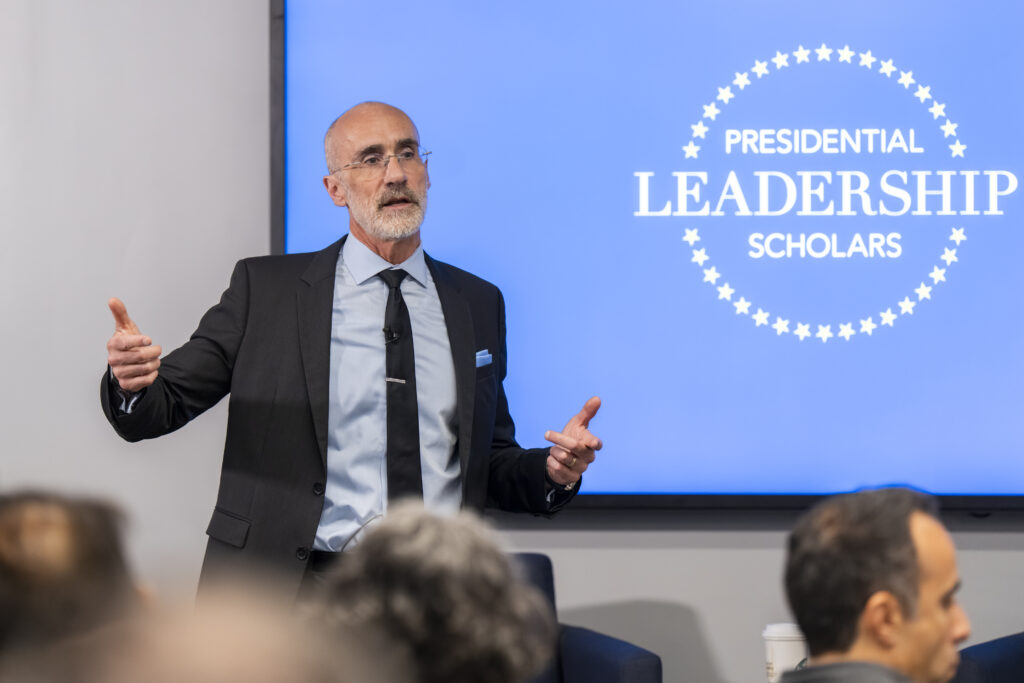
Compassionate, principled leadership matters. Leaders like the nearly 600 who have graduated from PLS, who seek to work across divisions and care for those they lead, are our hope for the future. As leading researcher and Harvard Business School Professor Dr. Arthur Brooks told Scholars in D.C., “When we bring the meaning back to our lives and our work — then it’s a new day.”
The PLS Class of 2025 and the nine classes before them are bringing meaning back to their lives and work and building a brighter future for us all.
Apply to join this one-of-a-kind community of leaders today.
